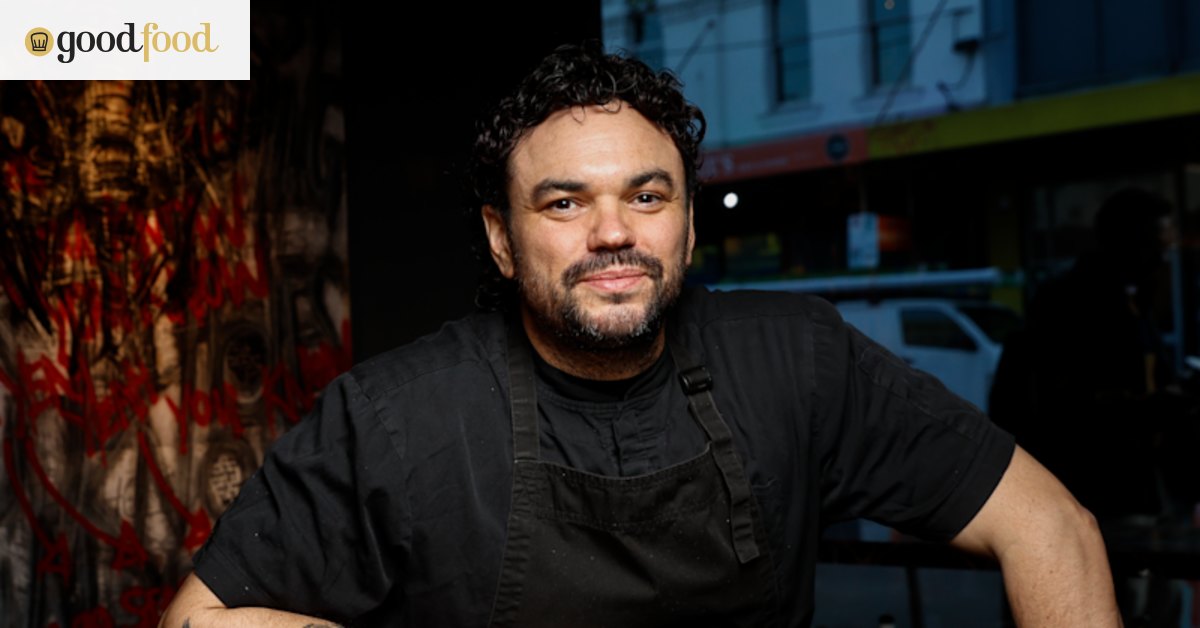
Bomba wasn’t the first, but she exploded in our lives like a digital grenade. She’s not real, I told my dad – then in his early seventies. I was in Australia at this time, where I’ve lived for the last 13 years. Physically speaking, he was still in California – but within himself, he was adrift in a rapidly sinking lifeboat, floating in a morass of debris primarily of his own doing. But it must be said before I go further: my dad isn’t the bad guy in this story. Not this time. At times, he was the bad guy in other people’s stories– but that is another story.
If she’s not real, he countered, then how is it that we’ve spoken on the phone? That we video-chatted? I’ll admit that threw me. In most catfishing stories, the catfish goes to great lengths to avoid video chatting. But my dad being the unreliable source he was, I wasn’t entirely sure he was being truthful about that detail. It was a heartbreaking thing to have to break down for my dad. My dad – who had once been a handsome, charismatic Lothario with swagger, with game – now had to be told by both of his daughters that this chic Bomba was 100% not real, not into him, not what or who she says she is. He didn’t believe us.
The Anatomy of a Scam
Bomba had presented herself, via Facebook, as a widow living in Naples, Florida. She and her late husband had been in the gemstone business, and she was a millionaire. A lonely millionaire at that, looking for love and companionship.
She’s not real, Dad. I begged him to understand.
But I’ve seen her bank statements.
Why would she show you her bank statements?
Because her money is tied up in Europe, she can’t access it, but she wanted me to know she has it.
Dad. This is a scam. Have you given her money? Did she ask for money?
Dad?
DAD?
Needless to say, he didn’t believe me.
The Financial Rollercoaster
The thing about my dad and money is that he had lived a life of great abundance and great scarcity. He’d been born into 1950’s Midwestern high-society, the son of a department store titan, and then – as many of his cohort did in the sixties and seventies, he ‘dropped out.’ He spent most of his twenties and early thirties in the Motown music scene – he was a talented saxophone player – and in that scene, he became addicted to heroin and other substances. He was a low to mid-level drug dealer himself and I am pretty sure there are things I still don’t know about that time.
What I do know – because I lived it – is that, while he was never what you’d call ‘straight’ – he did straighten out. He began the long process of untangling himself from heroin after I was born, but he’d never kick his dependence on alcohol and weed – and that taste for opioids would come back for its pound of flesh. He aimed higher. He got “good” jobs. He started businesses. He achieved as an athlete and was the basketball coach at my high school. For a period of time, he, and those around him, flourished. He had money. And then he lost it, along with his second marriage, his house in the California mountains, his fancy RV … and his pride.
The Descent into Desperation
By the time Bomba appeared, he was still nursing the faint hope that he might – somehow, some way – get it all back again. Even though by this time he’d burnt so many bridges he was practically an island, and was thoroughly physically incapacitated by the severe scoliosis he’d always outrun as a younger, fitter man. For the pain that the gin couldn’t help, his doctors prescribed OxyContin. We’ll get to that.
He never admitted to sending Bomba money, but my gut says he did.
I’d hoped maybe that would be the last scam, but then this happened: my dad called one afternoon to tell me that he was going to buy my husband a better boat. How, I asked? Because I’ve won the lottery, he said. My heart sank.
Dad. It’s not real.
He forwarded me the documents he’d been sent – on Facebook – by some guy, let’s call him Bob. One was a “winning certificate” telling him that he’d won US$580m. I pointed out to him that I couldn’t find anything online to verify it – and plenty of things to alert us to the fact this was a scam. Other things he forwarded me were full of spelling errors and other ‘tells’. Still, he was intractable and unpersuadable.
The Cost of Belief
By this time – the time that my sister and I refer to as the whole lottery thing – or just the scam – we knew, to the penny, what my dad had left in the bank – which was about $50,000. His social security checks were paltry, and he was carefully rationing what he had left on fast-food, cheap gin, weed, and dog food and meds for his golden retriever, Sonny.
What happened next took place over a period of about six weeks … maybe more, maybe less – to be honest, it’s all a trauma-blur.
Like clockwork, the scammers told my dad that in order to receive his winnings he had to cover the costs of the paperwork, transfer fees, insurance, and other vague items – that bill was around US$10k, give or take. He paid it.
Then he was told that because they’d be delivering the $580m dollars in cash to his doorstep, he’d need to cover yet more bank fees, and the cost of the delivery itself, and various other dubious requirements – to the tune of another $10k or so. He paid that, too.
When the money didn’t arrive and the scammers went quiet, my dad finally understood he’d been scammed (or so we believed). The FBI got involved, only to tell him that his money was, essentially, unrecoverable. They told him the obvious: don’t give them anything more and stop contact.
The Unraveling
This is where things get really weird and where my dad’s fragmenting mind and broken spirit came into stark relief. Now that my dad knew he’d been scammed he was understandably furious. But because of his own days as a low-level crim who had engaged in his own scams (there’s a weird story about a fake timeshare business he was a part of, and something to do with diamonds) – he was determined that he’d out-crim the crims.
Somewhere in this timeline my dad had been hospitalised for the third or fourth time in as many months. We’d recently been told that he had alcohol induced brain atrophy. And there was all the oxy. And the deep well of anger, sorrow, and fear.
Somewhere in this timeline I’d had to call the police multiple times from my home in Australia and send them to check on my dad – who had, again, threatened suicide.
Against this backdrop – my dad resumed communication with the people he knew had already stolen around US$20k from him – nearly half of all the money he had left in the world – the people the FBI had verified were, indeed, scammers. Weird, scary things happened. He threatened them. They threatened him. At one point, a plan was made to meet in a park after dark where, apparently, they were going to give him money. To this day I’m unsure as to whether my dad did, indeed, go to a park at night, wander around in his painful gait, confused, ashamed and angry, his pants too big for his dwindling frame – an image that cuts me to the bone.
I was so angry with him. He was honest with me about not having cut communication – and then he relayed the fact that they were, again, asking him for money. It was, essentially, to cover the same kinds of fake costs that he’d already paid. But this time, he was sure they were going to make him whole. So he gave them the rest. All of it. Every last cent.
In the last week of his life he was texting friends and family asking for $300 to send to the scammers for the petrol they said they needed to drive him his millions.
In the last days, he was, quite literally, penniless.
A few days after my dad died the scammers found my sister and me. We typed our outrage into the ether, screamed into the void, told them that they had blood on their hands – but we know that there was not a single person on the other end of that message. There are whole fleets. My dad was likely talking to multiple people – many of whom are probably living their own tragedies, in service of traffickers.
The Broader Impact
Knowing that our experience wasn’t uncommon was a cold comfort. We knew we weren’t the only adult children grappling with the devastating fallout of financial scams.
The scammers my dad encountered were not sophisticated, he suspended his own disbelief willfully. But many scammers are sophisticated – their scams don’t have spelling errors and inconsistencies. With AI, they are getting harder and harder for people to detect. Especially people who aren’t tech-savvy. As their children and loved ones, talking to them about changing their passwords and not clicking on links feels like the epitome of taking a knife to a gun fight.
Financial scams aren’t the only scams – I’ve come to see the other ‘scams’ that, over time, chipped away at my dad. Fox News convinced him that all of his many troubles could be blamed on immigrants, feminism, China … others. The Maga cult that conned him into thinking that Donald Trump would usher in a new era of success aimed at those who most needed it. The big pharma scam that told my dad that he could manage OxyContin – even though he’d told them he couldn’t.
These days, I’ve come to fear that the entire American project is a scam. The call is no longer only coming from shadowy figures on Facebook, it’s coming from inside the house – the White House – with the President himself hawking gold bibles and bizarre coins and EFTs. My dad fell for all of that, too.
There is a character in my new novel, Mother Tongue, named Eric. Eric has fallen for the Maga scam, for the Fox News scam, the Christian Patriarchy scam … but he goes down a far, far darker path than my dad did. Creating Eric was cathartic, as was creating his daughter, Jenny – who, like my sister and me, felt the sting of knowing that her father’s view of the world, of women, of humanity, was so painfully distant from her own – and that it was a worldview that, if realized to its fullest potential, would cost her dearly. When I first began to draft the character of Eric, I thought I was writing about something rare, drawn from the distinct and precise experiences I’d had with my own dad. By the time I finished, it was clear that I was writing about something many children are grappling with when it comes to their susceptible parents, and my heart breaks for them, too.
Mother Tongue by Naima Brown (Pan MacMillan, $16.99) is out now.






